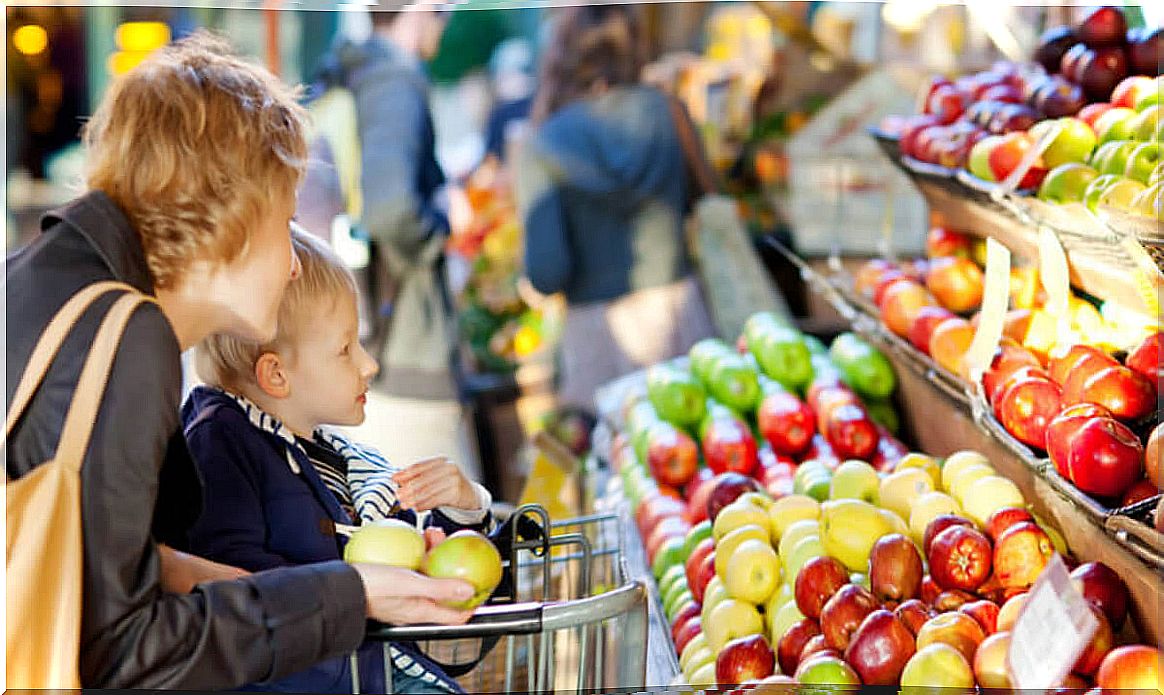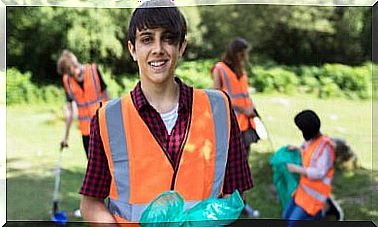Learning Math In The Supermarket

Have you ever thought about teaching your children math at the supermarket? Well, although it may seem strange, that place where you are forced to go week after week to buy food can be a great ally to practice and stimulate mathematical competence with the little ones in the house.
Keep in mind that when you go to the supermarket, you have to handle money, compare product prices, weigh fruit, etc. All of these tasks involve certain mathematical skills that children can develop in such a real, everyday context. This is beneficial for achieving more meaningful learning.
Learning math in the supermarket
Children need to have different options to learn math, beyond the classic cards and exercises that are done with pencil and paper. A good alternative is to allow the little ones to go shopping together with the adults, while the latter are in charge of guiding them in carrying out tasks in which certain mathematical knowledge must be used.

Thus, the following objectives can be achieved:
- Know the distribution of products in the supermarket.
- Bringing children closer to managing money and prices.
- Know the actual amounts.
Likewise, there are many mathematical contents that can be purchased and practiced in the supermarket, such as the use of:
- Mental calculation.
- The estimate.
- Natural numbers (count, order, compare, etc.).
- Decimal numbers.
- The calculator.
- Problem solving.
Teach mathematics as something useful for everyday life
Sometimes children may come to think that mathematics is abstract and even difficult to understand. To prevent this from happening, it is important to bring mathematics closer to the real world.
In this way, the little ones can verify that all the knowledge learned in class is useful for everyday life, such as adding, subtracting, multiplying, dividing, solving problems, etc. In this sense, the supermarket is a good example.
“Tell me and I forget. Teach me and I remember. Get me involved and I learn ”.
-Benjamin Franklin-

Other lessons learned in the supermarket
Mathematics is not the only thing that can be learned in the supermarket, as many other fundamental skills for the integral development of minors can also be acquired :
- Civic and social competences, since children have to communicate with supermarket employees, understand the buying and selling process and behave correctly in a certain social environment. They also acquire healthy habits and know which foods to consume regularly and which ones sporadically.
- Competence in learning to learn, since they understand that learning is something continuous that is acquired and perfected over time. Also, they can evaluate themselves and learn from the mistakes they have made.
- Linguistic competence, since they have to read the names of the products and their labels or when they make the shopping list before going to the supermarket. Which is also beneficial to develop planning and organization habits, which allow you to perform tasks effectively.
- Personal autonomy and independence, since, to make the purchase, they must make decisions and take certain risks. Thus, as they get older they can be allowed more freedom, so that they start going to the supermarkets alone, without the need to be accompanied at all times by an adult.
Put into practice learning math at the grocery store
True learning takes place when you connect with reality, when it is yourself who experiences and gets involved by participating actively. For this reason, we encourage you, when you have time, to take your child to do the shopping calmly and help him to better understand the complex world of numbers.










